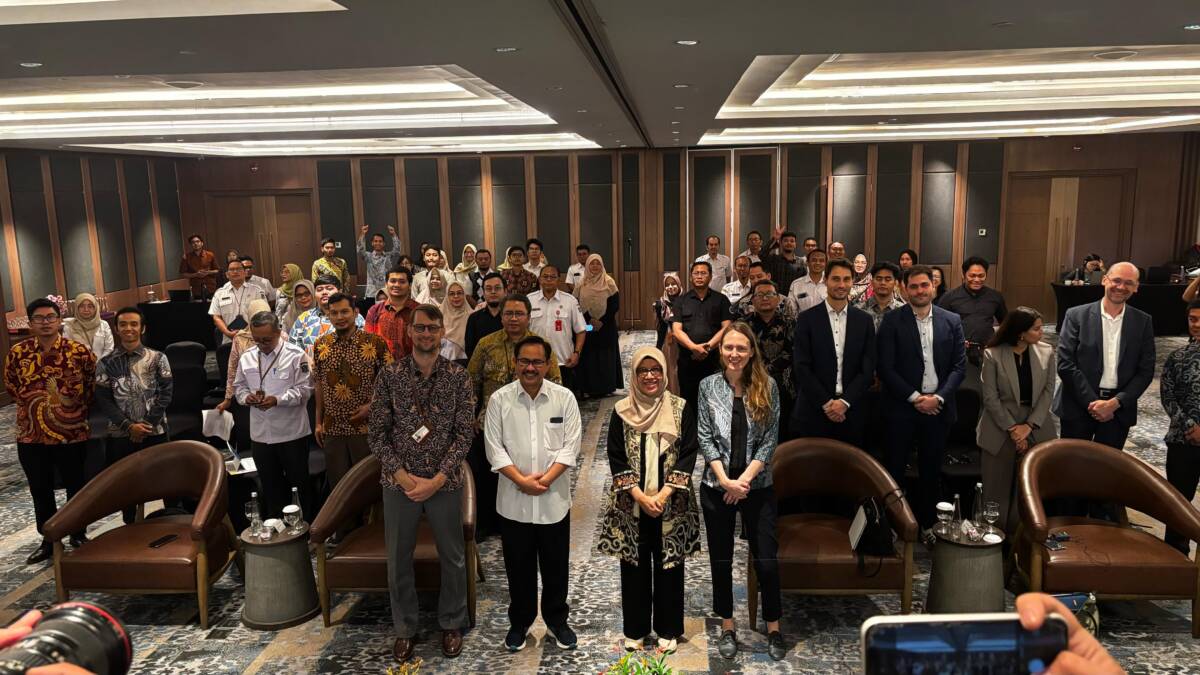Surabaya, 16 April 2025 – Surabaya City, East Java, has officially started the implementation of decarbonization of the building sector through the Sustainable Energy Transition in Indonesia (SETI) project. The project is funded by the German Government and is part of the Indonesia-Germany bilateral cooperation that has started since 2023 and will last until 2028. The Institute for Essential Services Reform (IESR) is also involved in the SETI project. Through SETI, Surabaya is expected to become a model city for energy transition and efficiency in the building sector, support the achievement of sustainable development goals, and reduce the carbon footprint generated by this sector.
Director of Various New and Renewable Energy, Directorate General of EBTKE, Ministry of Energy and Mineral Resources, Andriah Feby Misna said, collaboration with the SETI project is a form of concrete support from the central government and development partners for the city government to accelerate energy transition at the city level, especially in the building sector.
Surabaya is the second largest city in Indonesia with enormous economic potential and will continue to grow. In addition, Surabaya has several advantages, including large energy saving potential, has implemented green building certification, high growth potential of the construction sector, and high capacity and capability of local stakeholders.
“Surabaya is encouraged to become a pilot city for energy transition and efficiency in the building sector in the SETI project. With the hope that its economic growth can go hand in hand with decarbonization measures in order to make Surabaya a low-carbon and sustainable city,” Feby said at the SETI Project Implementation Kick-Off in Surabaya, East Java, Wednesday (16/4).
Director of SUPD I Directorate General of Regional Development, Ministry of Home Affairs, Edison Siagian emphasized that government administration in the energy sector in Indonesia involves two main ministries, namely the Ministry of Home Affairs (Kemendagri) and the Ministry of Energy and Mineral Resources (ESDM), as stipulated in Law No. 23 Year 2014. These two ministries have interrelated but different roles in ensuring the management and utilization of energy resources in the regions run well and in accordance with existing regulations.
“We are responsible for general guidance, which includes supervision of the division of affairs, institutions, regional finances, and public services. In addition, we also oversee general policies that apply in the regions and ensure their implementation at the provincial and district / city levels. Meanwhile, the Ministry of Energy and Mineral Resources has a more technical role in the energy sector,” said Edison.
According to Edison, referring to Articles 375 and 377 of Law 23/2014, the ministry’s duties include technical guidance and supervision related to the use of new and renewable energy (EBT) in the regions. This technical guidance includes supervision of public service units, energy project management, and development of energy-related policies that support the sustainability of natural resources. The Ministry of Energy and Mineral Resources is also responsible for supporting the energy transition to cleaner and more sustainable energy sources, in line with Indonesia’s commitment to achieving national targets.
“Overall, coordination between the Ministry of Home Affairs and the Ministry of Energy and Mineral Resources is very important in creating effective energy policies that are in line with the development of energy needs in the regions. Both ministries have a strategic role in ensuring that Indonesia’s energy sector can adapt to changing times, focus on sustainability, and support the achievement of national targets in the renewable energy sector,” said Edison.
Meanwhile, Ikhsan, Regional Secretary of Surabaya City, emphasized that the implementation of decarbonization in the building sector is part of the sustainable agenda that has been carried out by the Surabaya City Government. For example, the implementation of energy efficiency and the use of environmentally friendly materials in buildings, such as Surabaya City Hall and Joyoboyo Intermodal Terminal. This policy aims to reduce the carbon footprint in the building sector, which is one of the main contributors to greenhouse gas emissions in urban areas.
“Good urban spatial planning should also be carried out to ensure the needs and comfort of city dwellers are still achieved. More massive socialization to development actors and the Surabaya City community is needed, so that they better understand spatial planning policies and the benefits of Green Building implementation. Active participation from all parties, from the government, development actors, to the community, is crucial in realizing a sustainable and environmentally friendly city,” said Ikhsan.
Johannes Anhorn, SETI Project Consortium Coordinator, stated that now is the right time to start this project in Surabaya, especially with the new government. The project is expected to bring significant changes in decarbonization efforts and improved energy efficiency in the building sector.
“Surabaya City Government will receive technical support, planning studies, capacity building, and participation in urban energy networks through this SETI project. With this support, it is hoped that Surabaya can become an example for other cities in carrying out the energy transition towards better sustainability,” said Johannes.

